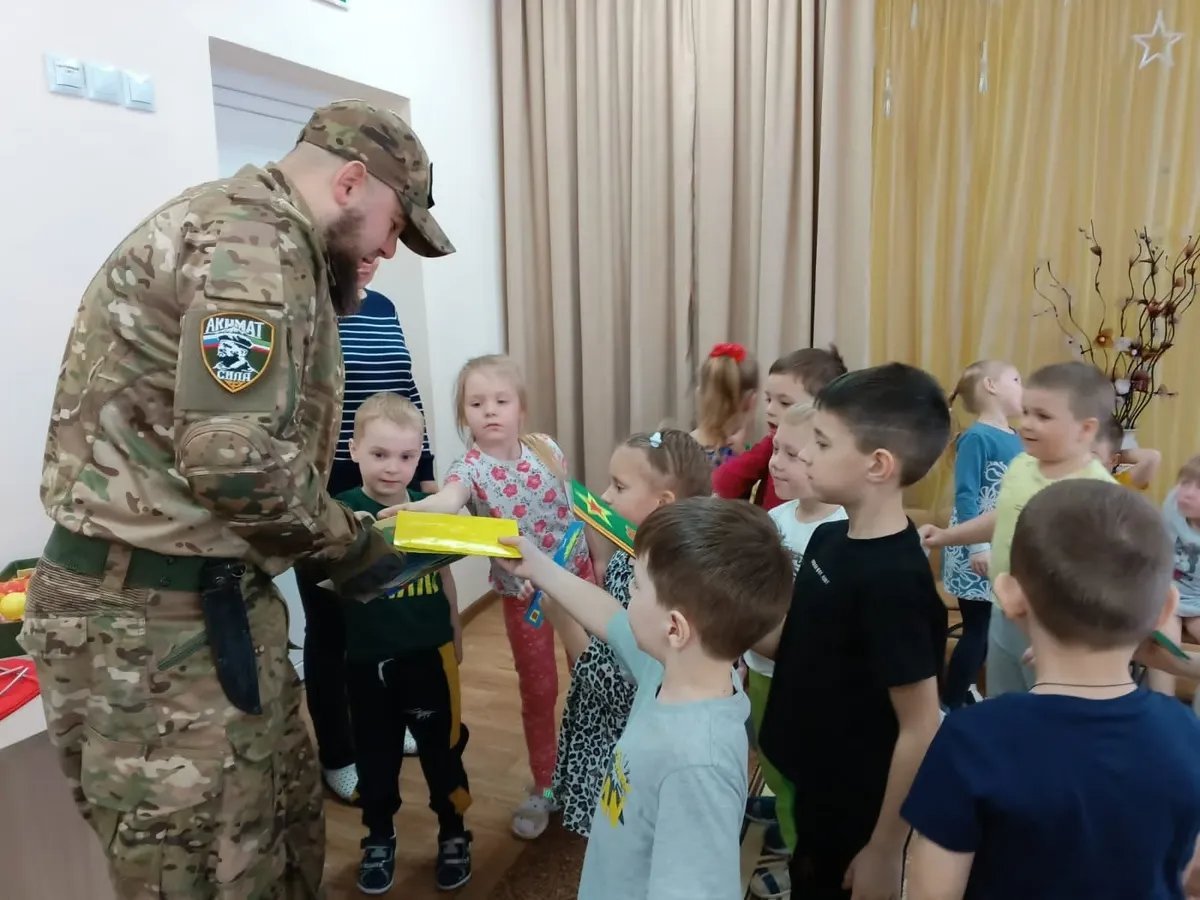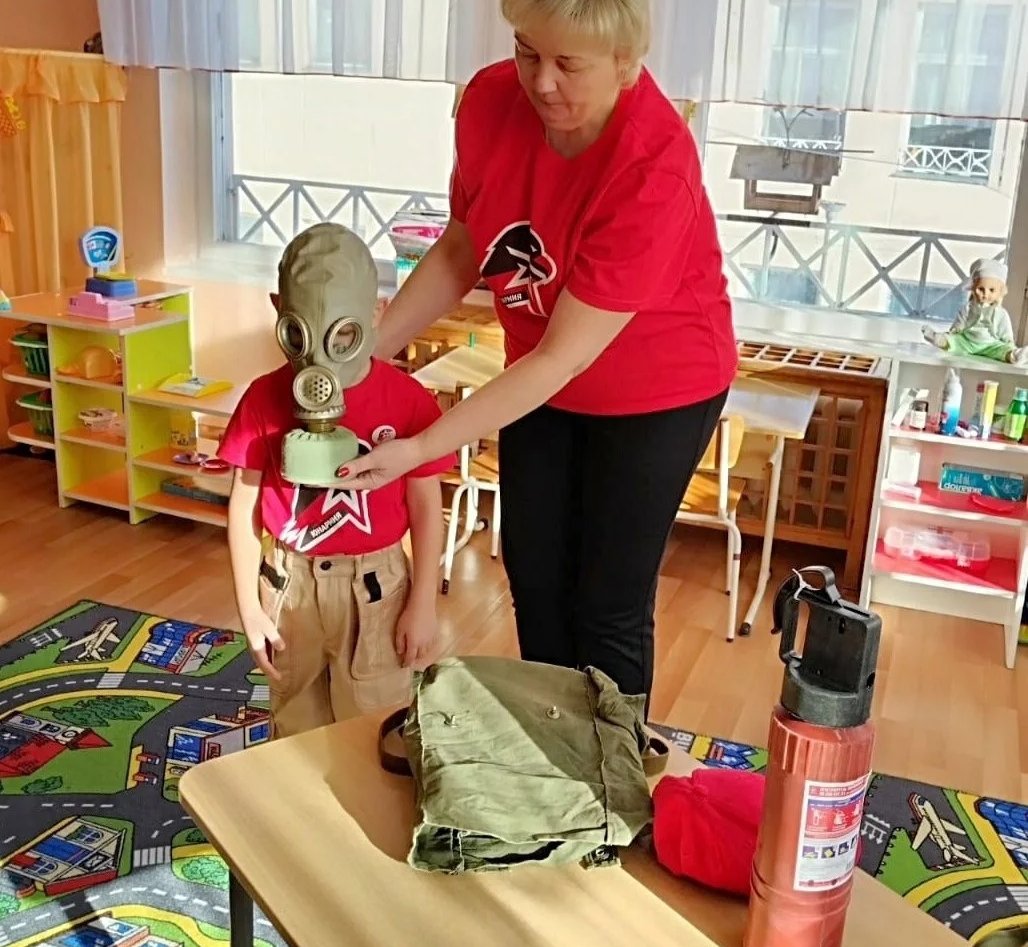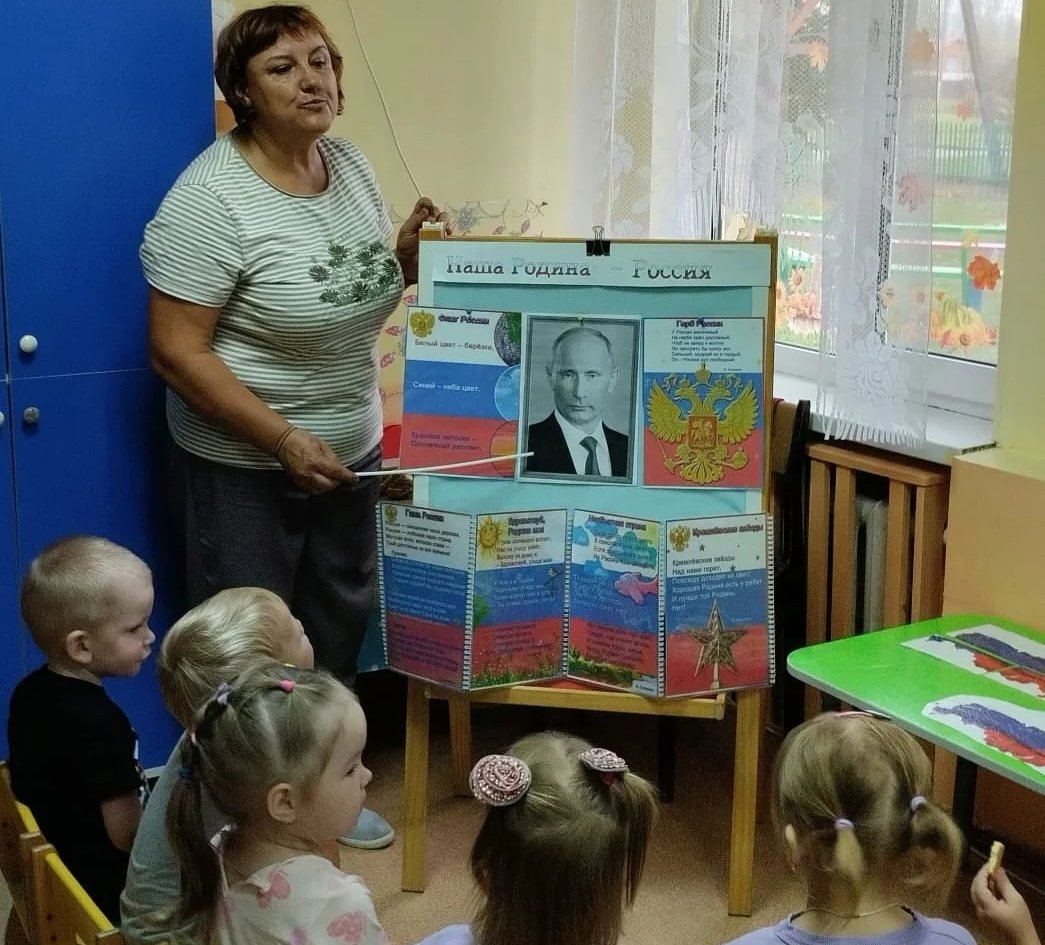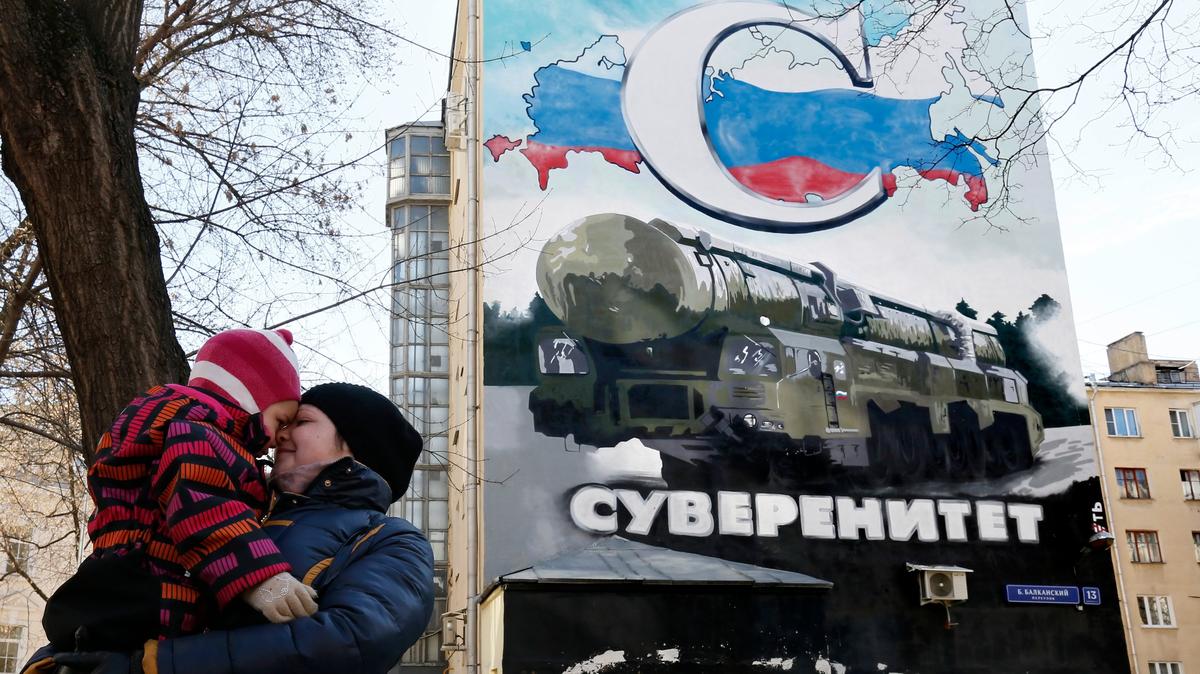One in three state-funded kindergartens in Russia is actively engaged in teaching the Kremlin’s war propaganda, as children now start to learn about Russia’s “military goals” before they can even read or write.
In early October, Vladimir Putin urged Russian educators to extend the Important Conversations programme, compulsory propaganda lessons designed to “boost patriotism”, to kindergartens, with the youngest children encouraged to learn what the Kremlin has stipulated are Russia’s “core values”.
While ideological education has long been an established part of the school curriculum in Russia, the state’s call to extend this propaganda to preschoolers is new territory. In reality, however, most kindergartens were already promoting such narratives, having collectively held over 200,000 “patriotic” activities so far this year alone.
At least 10,000 Russian kindergartens are actively teaching preschoolers pro-war propaganda, Novaya Europe has learned after analysing the public pages of kindergartens on VK, Russia’s largest social media platform.
The invasion of Ukraine in particular has become something of an ideological touchstone in Russian schools, with kindergartens holding 19,000 events in support of the war so far in 2024.
One particularly keen preschool in central Russia’s Tula region immediately began acting on Putin’s proposal to teach patriotism to kindergartners, and invited a veteran of the war in Ukraine to come in and speak to its preschoolers. In a post published on VK, one of its teachers commented that a child should understand the “basics of patriotism”, including the individual’s duty of “service to the motherland”, by the age of six.
Discussion of Russia’s war in Ukraine begins even earlier, however, with Novaya’s research showing that war-themed events are frequently held for children as young as three.
Most celebrations, activities, and events held in Russian kindergartens are centred on major patriotic and military holidays such as Victory Day on 9 May, which celebrates the USSR’s victory in World War II, and Defender of the Fatherland Day on 23 February — both of which are named in the federal curriculum as “patriotic and military holidays” that children are encouraged to celebrate.
Kindergartners also commemorate dates marking key World War II victories — the Battle of Stalingrad and the lifting of the siege of Leningrad, as well as more recent “memorial days” linked to the ongoing Russian invasion of Ukraine, such as the Day of Remembrance of Child Victims of the War in Donbas.
No escaping the war
Since the start of the full-scale invasion of Ukraine in February 2022, Russia has introduced new “patriotic” activities into the preschool curriculum. More than 2,000 kindergartens across Russia have asked children to write letters to soldiers fighting in Ukraine this year.
In some preschools, children appear to have been told what to write. For example, each letter from kindergarten pupils in western Siberia’s Novosibirsk region begins with the same phrase — “I am writing to you, dear hero, and I express my gratitude!”. Meanwhile, children in another Siberian kindergarten not only wrote postcards to servicemen, but also wove them a camouflage net.
Collecting humanitarian aid to send to the front in Ukraine is the most popular type of “patriotic” activity organised by kindergartens. Often called “We don’t abandon our own”, the activity involves parents and children putting together care packages for those at the front, collecting everything from underwear to trench candles.
Military personnel are also regularly invited to visit kindergartens to tell children about their service, with over 1,000 such talks already taking place in 2024.

A kindergarten in the town of Nizhny Lomov in the Penza region. Photo: social media
Children are being taught about the war in Ukraine even in Russia’s most remote regions. Surprisingly, Moscow’s kindergartens are the most lax when it comes to promoting “patriotism”, with just seven kindergartens in Moscow appearing to have hosted militaristic events — the same number boasted by the Chukotka autonomous district in the Russian Far East, despite it being home to approximately 12 million fewer people than the Russian capital.
Important Conversations, a programme introduced to Russian schools in 2022, which Putin incidentally also recently said he’d support being extended to kindergartens, requires teachers to instil “patriotic values” in their pupils every Monday. At the beginning of each lesson, pupils raise the Russian flag and sing the national anthem.
This academic year, school pupils of all ages are scheduled to learn about the history of Russia’s state-owned news agency TASS as well as to be taught how to spot misinformation. Other topics being taught include what constitutes a “strong family”, “positive examples of the work of MPs” and the “strong will” of those who have served in Ukraine.
Many kindergartens have already introduced Important Conversations despite there being no legal requirement for them to do so, with at least 560 preschools introducing nativist indoctrination classes this academic year.
In some kindergartens, children are tasked with learning about the so-called “new territories” that Russia claims to have annexed from Ukraine, despite the fact that it doesn’t fully control any of them. In March, a kindergarten in the Russian Volga region city of Saratov gave a presentation on the flora and fauna of the Crimean Peninsula. While in another presentation this autumn, the same kindergarten presented the Russian-occupied territories of Ukraine as “legitimate Russian land”.

A kindergarten in the town of Sukhinichi in western Russia’s Kaluga region. Photo: social media
Child patriots
“Patriotic” youth organisations are known to accept even the youngest children into their ranks despite formally having a minimum age requirement. The Young Army Cadets National Movement, or Yunarmiya, founded by former Defence Minister Sergey Shoigu in 2016, now has 1.6 million members across Russia, or around 7% of all children aged between 8 and 18.
Yunarmiya cadets regularly unveil memorial plaques commemorating the lost lives of Russian servicemen in Ukraine, paint street art murals to the heroes of the “special military operation” as well as undergoing military training themselves.
Technically, only children over the age of eight are allowed to join Yunarmiya, but kindergartners often join up regardless, encouraged by the praise of their teachers, one of whom in the town of Kamenka in Russia’s Penza region described kindergarten students who join Yunarmia as “the future defenders of our homeland”.

A kindergarten in the town of Kamenka in Russia’s Penza region. Photo: social media
Another youth organisation, The Movement of the First, founded after the full-scale invasion of Ukraine in 2022 for the express purpose of “forming a worldview based on traditional Russian spiritual and moral values” also appears to be popular among preschoolers.
A kindergarten pupil described as a member of the movement, which technically only accepts children from the age of six, was reported to have sung a patriotic song at an event in the town of Gryazovets, in northwestern Russia’s Vologda region.

